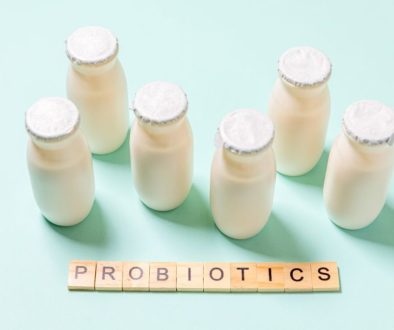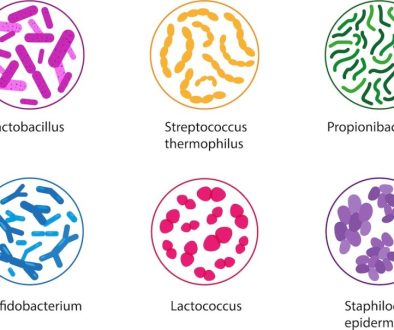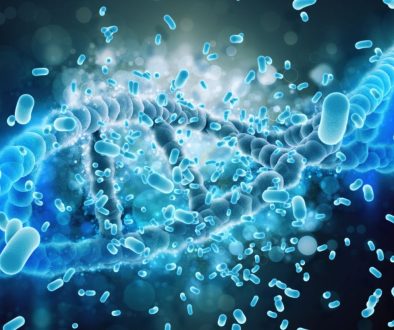How Probiotics Work in the Body: Understanding Their Mechanisms
Probiotics are live microorganisms that confer health benefits when consumed in adequate amounts. They are often referred to as “good” bacteria and play a crucial role in maintaining a healthy gut and overall well-being. Understanding how probiotics work in the body can help you appreciate their importance and effectiveness. This article explores the mechanisms through which probiotics exert their beneficial effects.
1. Restoring Gut Microbiota Balance
The human gut is home to trillions of microorganisms, collectively known as the gut microbiota. This community comprises beneficial bacteria, harmful bacteria, viruses, and fungi. A balanced gut microbiota is essential for optimal health, but factors such as antibiotics, poor diet, stress, and illness can disrupt this balance.
- Mechanism: Probiotics help restore the natural balance of gut bacteria by introducing beneficial strains into the digestive system. This competitive exclusion prevents harmful bacteria from proliferating, reducing the risk of infections and gastrointestinal disorders.
2. Enhancing Gut Barrier Function
The gut barrier is a crucial component of the immune system, acting as a protective wall between the intestines and the rest of the body. A healthy gut barrier prevents harmful substances from entering the bloodstream while allowing nutrients to pass through.
- Tight Junctions: Probiotics promote the integrity of tight junctions, the connections between intestinal cells that help maintain the gut barrier. By strengthening these junctions, probiotics reduce intestinal permeability (often referred to as “leaky gut”), which can lead to inflammation and various health issues.
- Mucosal Defense: Probiotics also enhance the production of mucin, a component of the mucus that lines the gut. This mucus layer acts as a barrier against pathogens and supports the growth of beneficial bacteria.
3. Modulating Immune Response
Probiotics play a significant role in regulating the immune system, helping it respond appropriately to threats while maintaining tolerance to harmless substances.
- Immune Cell Activation: Probiotics stimulate the production of immune cells such as macrophages, T cells, and B cells. These cells are essential for identifying and eliminating pathogens, thus enhancing the body’s immune response.
- Cytokine Production: Probiotics influence the production of cytokines, signaling molecules that regulate immune responses. They can promote the production of anti-inflammatory cytokines, helping to manage inflammation and reduce the risk of chronic diseases.
4. Competing for Resources
Probiotics can outcompete harmful bacteria for resources in the gut, such as nutrients and attachment sites on the intestinal lining.
- Nutrient Absorption: By colonizing the gut, probiotics ensure that beneficial bacteria thrive while limiting the growth of pathogenic organisms. This competitive advantage can improve overall gut health and nutrient absorption.
- Production of Antimicrobial Substances: Many probiotic strains produce substances such as bacteriocins and hydrogen peroxide that inhibit the growth of harmful bacteria. These antimicrobial compounds help maintain a balanced gut microbiota.
5. Producing Short-Chain Fatty Acids (SCFAs)
Probiotics contribute to the fermentation of dietary fibers in the colon, leading to the production of short-chain fatty acids (SCFAs), such as butyrate, propionate, and acetate.
- Health Benefits of SCFAs: SCFAs serve as a primary energy source for colon cells and have been linked to various health benefits, including anti-inflammatory effects, improved gut barrier function, and enhanced immune regulation. Butyrate, in particular, is known for its protective role in colon health.
6. Influencing Gut Motility
Probiotics can affect gut motility, the movement of food through the digestive tract.
- Enhanced Digestion: By promoting regular contractions of the intestinal muscles, probiotics help improve digestion and reduce issues like constipation and bloating. This effect can be particularly beneficial for individuals with irritable bowel syndrome (IBS) or other gastrointestinal disorders.
Probiotics offer numerous health benefits through various mechanisms in the body. By restoring gut microbiota balance, enhancing gut barrier function, modulating immune responses, competing for resources, producing short-chain fatty acids, and influencing gut motility, these beneficial microorganisms contribute to overall health and well-being. Incorporating probiotics into your diet, through supplements or fermented foods, can help support a healthy gut and improve your quality of life.
Sources
- Hill, C., et al. (2014). “Expert consensus document: The International Scientific Association for Probiotics and Prebiotics consensus statement on the scope and appropriate use of the term probiotic.” Nature Reviews Gastroenterology & Hepatology.
- Mabbott, N. A., et al. (2013). “The impact of gut microbiota on immune responses and disease.” Nature Reviews Immunology.




